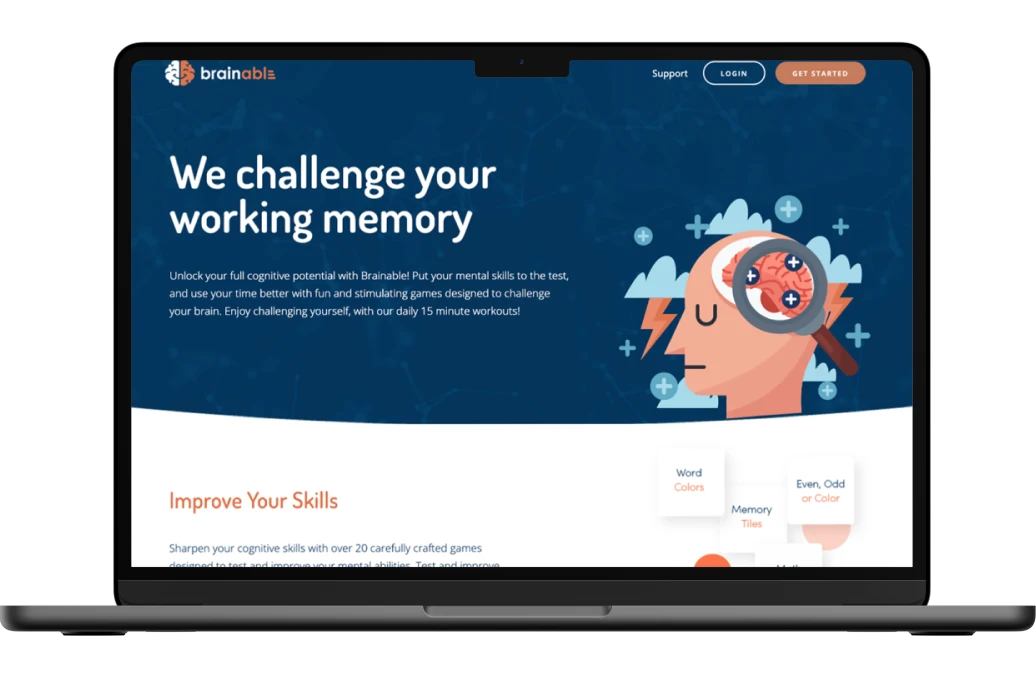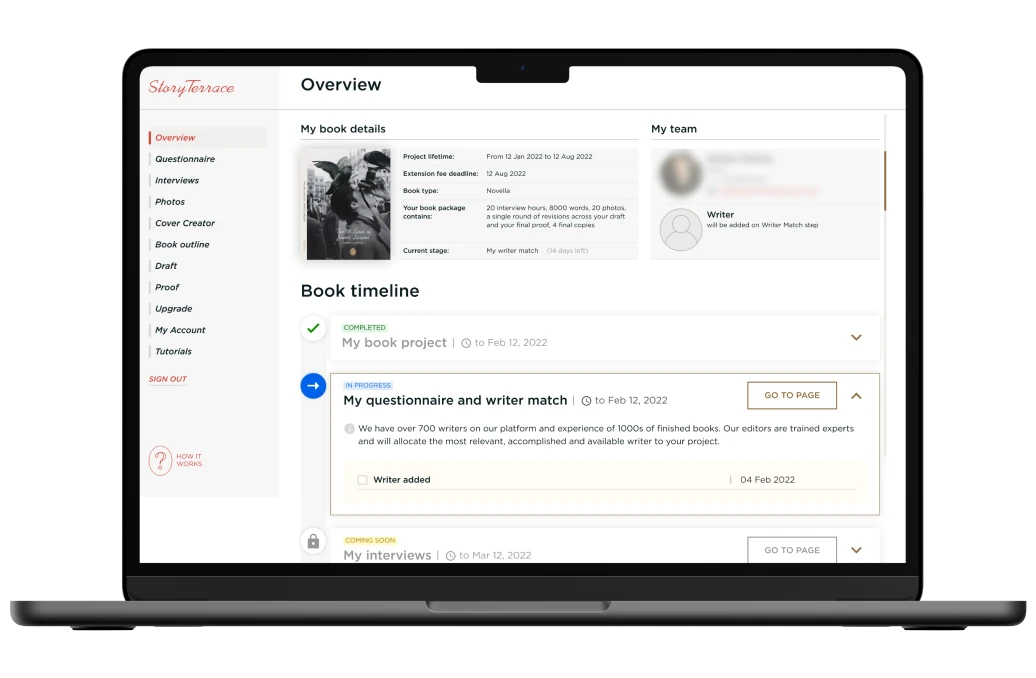Are you interested in developing real estate chatbots? This article will give you a complete guide to this topic!
Chatbots are a technology that is essential for the majority of businesses dealing with real estate. Why is this the case? This technology is highly vital in two dimensions. On the one hand, an AI-powered chatbot speeds up customer response time, preventing long-term inability to offer a solution to particular problems. On the other hand, real estate chatbots save labor, allowing your experts to focus on the most critical tasks rather than mundane everyday questions. In this article, you’ll learn about the key chatbot features and the main benefits of this technology for your firm in the long term.
What Do Real Estate Chatbots Stand For?
A real estate chatbot is a technology capable of engaging in text communication with customers without human intervention. A chatbot offers every stakeholder some unique positive opportunities. Chatbot platforms allow customers to solve many problems without communicating with the staff. At the same time, a chatbot solution enables the staff to work only with the most complex customer problems.
Today, there are many types of chatbots in the real estate industry. Generally, we can split them into two types. Firstly, algorithm-based real estate chatbots are present. These solutions are notable for offering a set of pre-made menus and responses to customer requests. Algorithms are capable of many things at the current stage of their development in chatbot technology. For example, they can calculate real estate values and even offer specific property profiles upon user request.
Secondly, chatbot use cases are bound to become much more extensive with the advancement of AI technology. These chatbots for clients and agents are notable for their ability to adapt to different customer requests instead of simply following specific algorithms. For example, chatbots for real estate agents can help them perform real-time searches for various online properties. This technology is undoubtedly among the most influential innovations of recent years, and it’s taking the competitive real estate market by storm because many companies are genuinely interested in a technology that will automate the processing of many customer requests even further.
Key Benefits of Chatbot Usage in Real Estate

We believe there are multiple core reasons to use chatbots specifically designed for real estate. Let’s review those reasons in-depth in the next sections:
24/7 service for customers
The first reason for integrating chatbots is the ability to create a 24/7 service for customers. Many users of real estate services tend to face a deficit of time. As a result, the lack of a 24/7 service can prolong the resolution of specific problems for months. For example, issues with bills may be complex due to overwork. Real estate chatbots solve this problem once and for all by allowing customers to solve problems at any time of the day. This 24/7 service is excellent for marketing campaigns. The math here is simple: if you provide services at any point of the day or night, then more people will be willing to work with your business.
Enhanced lead generation
The preceding advantage quickly transitions into the second one. An average real estate chatbot can generate leads for you without significant interruptions. For example, a property listing in an automatic mode can attract new customers without any work from your managers. Why is this so vital? With the help of real estate chatbots, the number of leads will grow significantly. In this light, you will have an opportunity to concentrate on the most complex cases and, thus, convince a much larger number of individuals to consider your services through a personalized approach to selling services.
Automatic property matching
With modern AI chatbots, property search is becoming even more straightforward. Traditional chat bots are capable of offering an extensive property list. In many cases, this property list could lead to some degree of overwhelm among customers. Artificial intelligence, however,, provides a path to ideal property transactions via its focus on pattern recognition. This pattern recognition can match you to 2-3 ideal cases that suit your search request as much as possible. In short, a real estate chatbot can find properties for you without human help.
Immediate response to customer requests
The key problem with real estate agents is that they don’t respond immediately. In the cases of the most high-value agents, they can take multiple days to answer their customers. This factor can lead to the loss of potential customers, who may be annoyed by the wait. This problem, however, doesn’t involve modern real estate chatbots. They are algorithm-based and, therefore, can respond to human requests at any time. This is highly vital for retaining a large number of customers. Real estate AI chatbots can’t wholly substitute your workforce. However, they can remove a significant amount of pressure through the early lead collection by answering the most vital customer questions early on.
Great cost efficiency
Chatbots are notable for their high level of cost efficiency. Why is this the case? Real estate bots don’t require salaries and don’t have bills to pay. All you need to maintain them is to create the bot in question and connect it to the Internet. Chatbots for real estate, thus, save significant amounts of money. They can substitute the functions of at least several workers in the most optimistic cases. As a result, your expenditures will decrease significantly with this approach. A chatbot for real estate always means an opportunity to save substantial funds during development.
Increased efficiency levels
Real estate businesses deal with many requests that are unlikely to end in any deal. For example, some people may be looking at a purchase of a house in 3 to 5 years. Their goal is to have a general market review rather than purchase something. Real estate chatbots streamline processes for these individuals and relevant firms. They offer people who represent long-term leads an opportunity to gain data today and at any time of the day. At the same time, they don’t waste the resources of the real estate managers by offering information from the real estate databases automatically. In this way, the overall efficiency of the processes rises for all involved stakeholders.
Increased number of engagement channels
The real estate industry needs to focus on marketing as much as possible to succeed. For this reason, the investment in chatbots makes a lot of sense for individual companies. Why? Chatbots in real estate increase the channels through which the customers receive information. Having multiple ways to access data from your business is vital. For example, some people may prefer chatbots and sites. Others may be interested in traditional social media like Instagram or Facebook. The more channels for engagement you offer, the higher the chance of maximizing the long-term positive impacts for your firm. Real estate chatbots are a vital channel for attracting customers that is growing in popularity, so we recommend paying attention to them as much as possible.
Better opportunities for data collection
Chatbots for real estate collect data in a more or less automatic mode. This factor offers an excellent opportunity for improving the functioning of your business in the real estate market. Why is this the case? With traditional real estate agents, much data is lost during everyday work. However, chatbots record all real estate operations. In this way, they offer a perfect framework for understanding the long-term functioning of your business. You can collect data about a tremendous number of interactions with your bots and then develop high-quality models for assessing the viability of your business based on online interactions.
Multiple language support
Another reason to consider real estate chatbots is their ability to function in multiple languages simultaneously. The problem with traditional real estate business models is that they often exclude people who speak different languages. For example, Spanish speakers in the US who are still learning English may be unable to purchase a home due to the absence of Spanish-speaking managers. Chatbots help overcome this problem by using multiple languages. This is especially true of AI chatbots for real estate. They can adapt to various languages and offer your customers a personalized experience that will fit their language needs.
Advanced automation of routine tasks
One of the main reasons to consider the usage of real estate chatbots undoubtedly has to do with the automation of routine tasks. In many cases, real estate professionals have to spend their time answering simple questions that relate to general price trends on the market or, for example, involve some juridical procedures associated with the real estate sector. Most of these questions can be answered by a real estate chatbot. AI-centric ones are even capable of high-quality custom questions. Therefore, you get an opportunity to automate most of the routine tasks with the help of this technology.
Best Practices For Successful Chatbot Usage
Multiple successful practices can help you use chatbots in the real estate industry. Let’s look at them:
Cooperation-based implementation
The first aspect you need to pay attention to is the cooperation-based implementation of the core features in your chatbot for real estate. What do we mean by cooperation-based? A significant mistake many companies make is to offload the development process to software developers alone and fail at including the opinions of real estate agents. Suppose you want your real estate services to succeed. In that case, it’s vital to avoid this problem by ensuring strong cooperation between the development team and the real estate agents. This approach will help you align the processes real estate agents engage in with the processes that the development team wants to create while producing the real estate tools for your company.
Strong focus on testing
The second practice you need to consider, and that many companies initially fail at, is undoubtedly testing. Quality assurance for a chatbot is essential for two reasons. Firstly, an AI real estate chatbot represents your company’s public image. If there are any problems, your business will be blamed for them in the long term. Secondly, problems with an AI chatbot can also lead to the loss of high-quality real estate transactions even if no issues with reputation occur. Many users who use real estate services typically don’t have much time to make their choices, so they may avoid your service if they feel that it will take away too much time from them. By testing, you remove the likelihood of both outcomes occurring and disrupting your business.
Monitoring success measures
The final best practice you should consider is the active measurement of the factors that bring success to your real estate virtual assistants. You should look at the popularity figures and, of course, the customers’ overall impression regarding the usability of the relevant chatbots. The more data you collect, the better for your business. Realtors measure their success and monitor statistics: you should do the same for your chatbot, and treat it as an additional realtor in your company.
Key Chatbot Features for Real Estate

Modern real estate chatbots should have multiple features if you want them to succeed in the market. Here are the core elements to consider:
1) Property search and listing features: Your chatbot should be able to find properties and offer customers a full-scale list of properties. In this way, it’ll act as a better alternative to search engines due to the use of internal algorithms geared towards your information storage systems in IDX and MLS frameworks.
2) Lead generation: Similar to real estate websites, your chatbot should have the ability to quickly collect information (for example, email or mobile phone number) about potential customers and transform it into a format that will be ideal for sealing the deals in the future;
3) Scheduling tools: Apart from lead generation, your real estate AI chatbot should also be able to scan schedules and set up meetings with real estate agents automatically. In this way, you’ll get an opportunity to improve the efficiency of lead attraction further by allowing customers to schedule property viewings in mere minutes.
4) Calculator tools: many people buy real estate through various forms of mortgages. In this light, they must have calculators that will indicate how much they will have to pay in the long term. Real estate chatbots usually don’t create significant obstacles to integrating these tools into their frameworks.
5) FAQ capabilities: your chatbot should also be capable of answering the most frequent questions regarding your service. Many users prefer to concentrate on this technology over real estate websites because it can offer them faster information. Therefore, you aim to ensure that information is obtained as fast as possible with these tools.
Custom Chatbot Development for Real Estate

Our company, Keenethics, offers custom chatbot development services for its customers. Are you still unsure about investing in custom development over off-the-shelf solutions? In that case, let’s take a look at the most common questions regarding them:
What Are the Key Reasons to Choose Custom Development?
There are two key reasons to choose custom development for chatbots. First and foremost, custom development for those tools is essential if you want to have unique features in your chatbot which are not available in any other tool. Secondly, it makes sense to invest in this technology if you’re willing to have, more or less, full ownership over your chatbot. In this case, there won’t be any reliance on outside frameworks, and, as a result, you’ll have complete control over your platform. This means introducing all types of changes will be much easier than in alternative situations of incomplete ownership.
How Does The Process of Development Look Like for Custom Chatbots in Real Estate?
The development process for a custom chatbot has the following stages:
- Requirements Gathering
- Design and Prototyping
- Development
- Integration
- Testing
- Deployment
- Monitoring and Maintenance
- User Feedback and Iteration
Case Studies by Keenethics
We have developed multiple projects in the real estate sector that showcase our expertise. In this regard, we’ve helped create Ruuster and Offerin, which offer complex listing services for customers. More importantly, our team has participated in the development of multiple chatbots, too.
What’s the average cost of a real estate chatbot?
The average cost of a real estate chatbot depends on your requirements regarding a particular project. In this case, we can’t tell the exact price without knowing what you need. The best option is to contact our team or, for example, use the calculator on our main page.
Conclusion
To summarize, investments in real estate chatbots make much sense in the current conditions. Why is this the case? In many cases, they significantly decrease the pressure your experts encounter when processing many customer requests. If you need help developing a chatbot, don’t hesitate to contact our company. We have over 9 years of experience and can deliver a genuinely high-quality solution.
FAQ
What do real estate chatbots stand for?
A real estate chatbot is a tool that works via messengers or other communication systems to deliver real estate information to customers. For example, a Facebook chatbot can deliver property listings information and search local MLS frameworks. In short, a real estate chatbot is a traditional chatbot that focuses on real estate tasks.
What are the main ways to use chatbots in real estate?
The main ways to use chatbots in real estate include the following cases:
• Lead Generation and Qualification
• Property Information and Listings
• Appointment Scheduling and Follow-Up
What are the main benefits of using chatbots?
In our opinion, the following benefits of using chatbots in real estate are present in the current markets:
• 24/7 responses: chatbots can answer at any time of the day;
• Fast responses: chatbots don’t only answer at any time of the day but also do this extremely fast;
• Cost practical approach: chatbots save money on the human workforce, allowing you to perform specific tasks without hiring experts at all;
• Better user engagement: the ability to respond at any time via the Internet is likely to attract a much larger number of customers than in many other cases.
How will real estate chatbots develop in the future?
Real estate chatbots will likely have a positive future in the upcoming years. Why? AI technologies are developing at an ever-increasing pace. In this situation, we expect AI chatbots to grow much more in the upcoming years, transforming the sector towards a much higher level of interactivity.
Keenethics is here to help!












